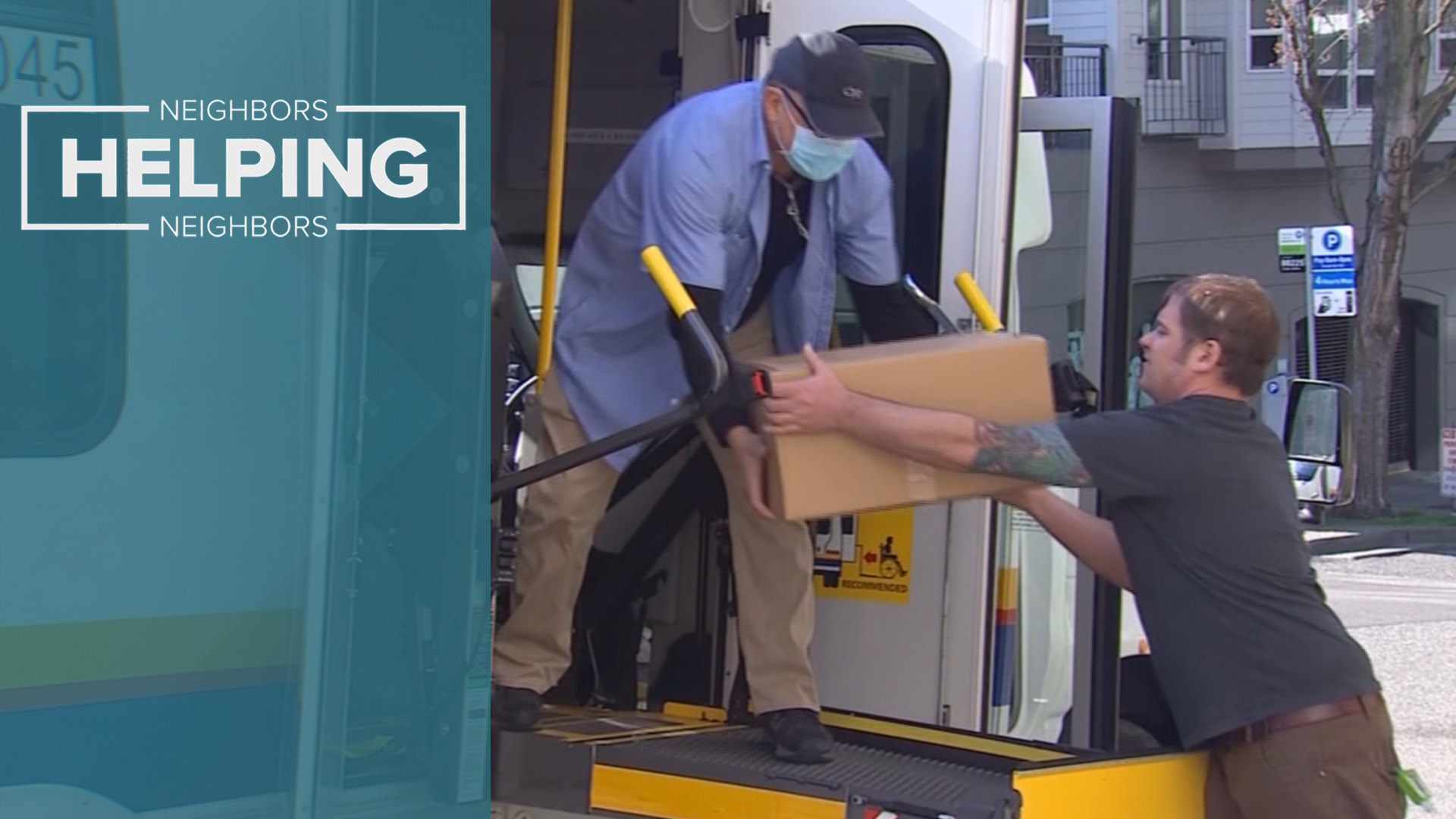SEATTLE — The coronavirus pandemic has crippled the restaurant industry and strained resources at local food banks which are working hard to provide meals to those who desperately need them.
Now some nonprofits, restaurant partners and even a critical part of King County's transportation network are working together to try and make sure nobody falls through the cracks.
The Access Transportation buses are generally used by King County to drive around people with disabilities but they’ve seen a dramatic drop in ridership.
“With Access ridership down about 75% or more, we had the drivers and we had the fleet to be able to pivot and change what we're doing to be able to help the community,” Solid Ground Transportation Director Kari Ware explained.
They’ve been able to repurpose the buses into delivery vehicles to bring food from food banks, restaurants, and other nonprofit partners to those who need it.
“We're delivering hot meals, we're delivering groceries, we're picking up at food banks, senior centers, Northwest Harvest, boxes, lunches, meals, and shelf-stable food,” Ware said.
On Friday, a bus was picking up at FareStart, a culinary training, and catering program that has also had to roll with the changing times.
“It's been quite the switch, everything we have to do is so different,” Vice President of Operations Chef Wayne Johnson explained. “Everybody's finding new roles, how can we support the community and how can we get food out."
They closed their restaurants, put their training programs on hold and brought back some graduates who had been laid off from restaurant jobs to make meals. They're using their own vans for deliveries, as well.
“The beautiful thing is we can wake up and know 7,000 more people, 10,000 more people got food out of this kitchen and all our kitchens around the city,” Johnson said.
The Access buses have more than 40 routes a day they're running around King County, even as far as Bellingham. It's not exactly the job these drivers were hired for but Ware says nobody has turned them down.
“Our drivers just want to be of service and instead of staying home, not doing anything they feel like they're contributing to everybody being able to stay safe and healthy," Ware said.

